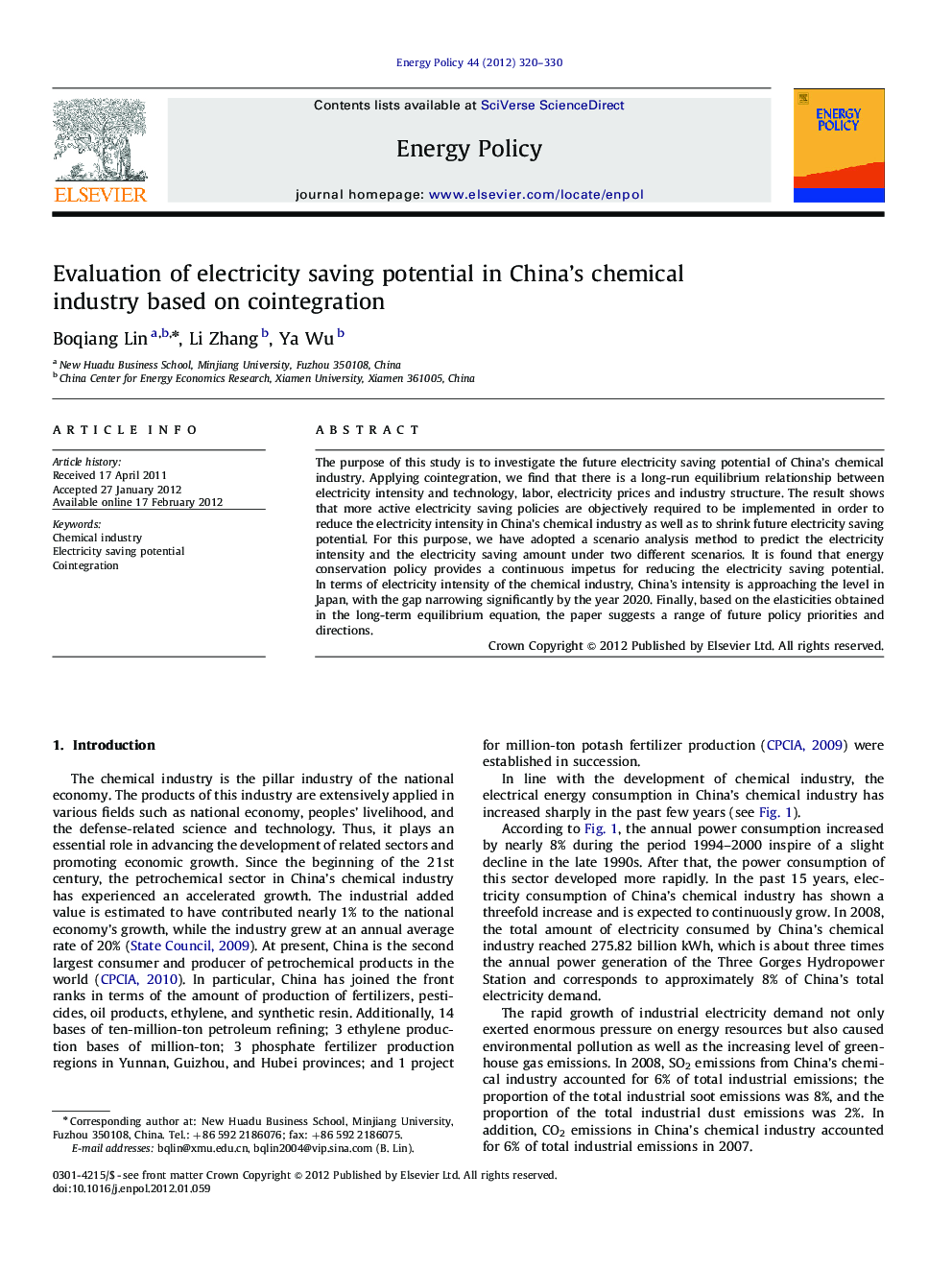| Article ID | Journal | Published Year | Pages | File Type |
|---|---|---|---|---|
| 995717 | Energy Policy | 2012 | 11 Pages |
The purpose of this study is to investigate the future electricity saving potential of China's chemical industry. Applying cointegration, we find that there is a long-run equilibrium relationship between electricity intensity and technology, labor, electricity prices and industry structure. The result shows that more active electricity saving policies are objectively required to be implemented in order to reduce the electricity intensity in China's chemical industry as well as to shrink future electricity saving potential. For this purpose, we have adopted a scenario analysis method to predict the electricity intensity and the electricity saving amount under two different scenarios. It is found that energy conservation policy provides a continuous impetus for reducing the electricity saving potential. In terms of electricity intensity of the chemical industry, China's intensity is approaching the level in Japan, with the gap narrowing significantly by the year 2020. Finally, based on the elasticities obtained in the long-term equilibrium equation, the paper suggests a range of future policy priorities and directions.
► The electricity saving potential of China's chemical industry is evaluated. ► A cointegration approach is used. ► Technology, labor, prices, and structure affect electricity intensity. ► The electricity intensity of China's chemical industry will decline greatly by 2020. ► Future policy for electricity saving in China's chemical industry are suggested.
